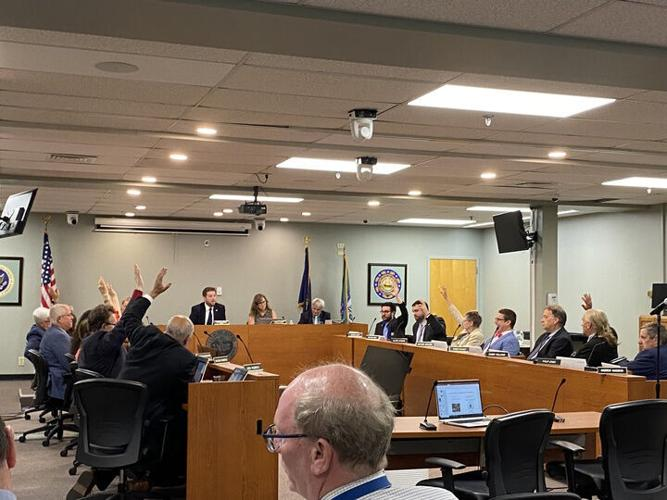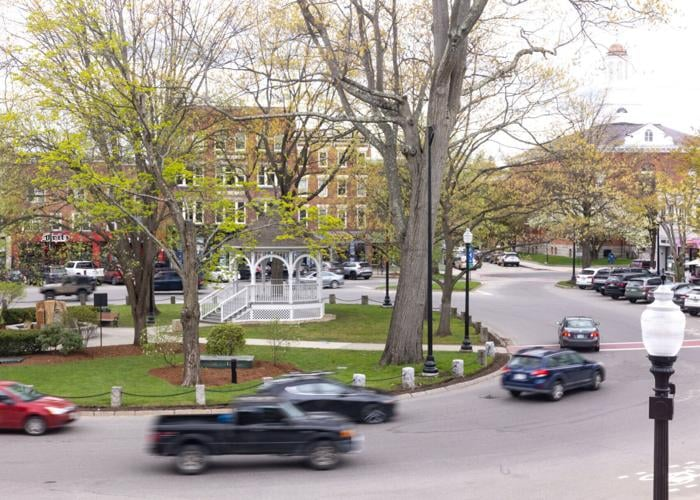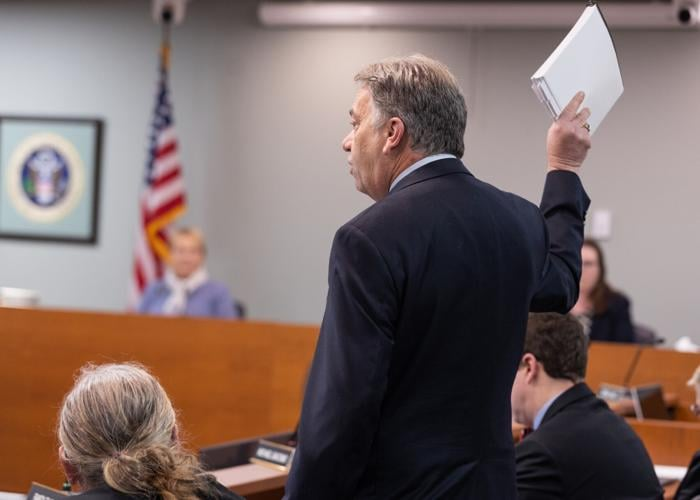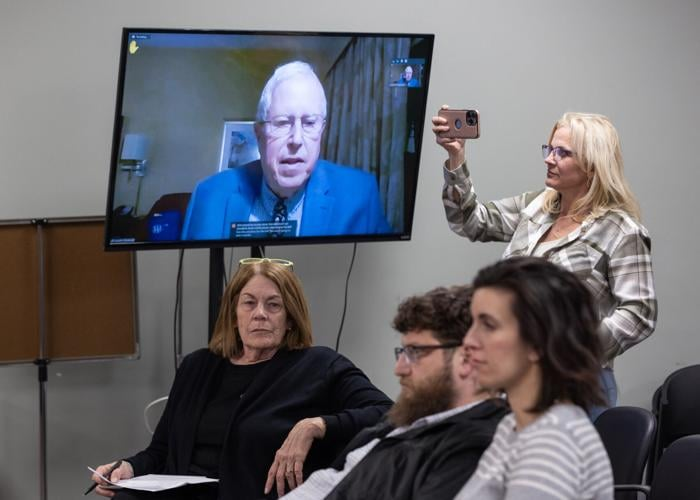Editor’s Note: This article is part of an ongoing series taking a deeper look at the Civic Health Index and what it means for Granite Staters.
By Kylie Valluzzi, Granite State News Collaborative
Randy Filiault has spent over 26 years serving on the Keene City Council, witnessing firsthand the evolving relationship between citizens and their local government. As a lifetime resident of Keene, Filiault has built relationships with his constituents, yet he’s noticed a shift in how people perceive their local leaders.
“If I'm looking for what I would say is the root cause of people being less confident in government, locally and nationally, it's really social media,” Filiault said. While Keene's nonpartisan city council and close-knit community might help maintain a higher level of trust than elsewhere, the challenges of misinformation and division are ever-present.
This decline in trust is reflected across New Hampshire. The University of New Hampshire Carsey School of Public Policy’s 2024 Civic Health Index shows that only 3% of Granite Staters trust their local government “just about always,” while 33% trust it “most of the time.”
City councilors vote during a 2023 discussion of Keene's downtown infrastructure project.
Hunter Oberst / Keene Sentinel Staff
Filiault believes that Keene’s unique character — its nonpartisan council and the fact that residents know their representatives personally — may buffer the city from the worst effects of this trend.
“I've been a lifetime resident of Keene, so people know me beyond just my political votes. That definitely helps,” he said.
Despite this, the challenges are undeniable. Filiault points to debates over Keene’s downtown renovation project as an example.
“We're going to be ripping up our downtown because the infrastructure is outdated and needs to be replaced,” he said. “Within Keene, being a small community, the public did actively get involved in that issue.”
However, he said that level of engagement is the exception rather than the rule. In an average city council meeting, he said, “we might have a dozen issues, but only one or two that the press even picks up on.”
Misinformation, lack of engagement
Misinformation, coupled with a general lack of engagement, has contributed to a decline in trust in local government across the state. Local governments, both at the state and town level, play crucial roles in managing everyday public services.
Town governments are typically responsible for services such as road maintenance, local law enforcement, public education and zoning regulations. State governments oversee broader functions such as statewide infrastructure, public health services, and managing state laws and budgets.
One of the key challenges local governments face is balancing tight budgets with public demands. Decisions on how to allocate limited resources — whether for road repairs, public safety, or education — are often contentious and can significantly influence public trust.
Nationally, trust in the federal government has dropped since 2001 and remained low from 2019 to 2023, the poll found. Most New Hampshire residents only sometimes or almost never trust the national government.
Cars whiz through Keene’s Central Square, as photographed in May 2023, (Keene Sentinel Photo Credit)
Historically, people tend to trust their local and state governments more than the federal government. A 2023 Gallup poll found that 67% of Americans trusted local government to handle local problems, compared to only 32% who trusted the U.S. Congress, the federal government’s legislative branch.
The pandemic effect
However, all institutions have below-average trust levels, the poll found. The COVID-19 pandemic significantly contributed to this decline, according to Tama Andrews, who is not affiliated with the poll but is an expert in political science and international affairs and teaches at the University of New Hampshire. Andrews cited the “negative news” and “alternative facts, misinformation, and outright falsehoods” that circulated during the pandemic.
The Civic Health Index reports that 36% of Granite Staters trust local government “just about always” or “most of the time,” 48% trust it some of the time, 15% hardly ever, and 1% are uncertain. Populations with high levels of distrust include libertarians, socialists, and North Country residents.
Keene City Councilor Randy Filiault speaks during a city council meeting on a downtown infrastructure project in 2023.
Hannah Schroeder / Sentinel Staff
These numbers were drawn from the January 2024 Granite State Poll, a web-based survey conducted by the University of New Hampshire Survey Center. The survey, which recruited panel members from randomly selected phone numbers in New Hampshire, gathered opinions from 1,864 people. The Civic Health Index drew on data from the poll, as well as data from the U.S. Census Bureau's Current Population Survey.
In the North Country, where distrust is particularly pronounced, residents tend to place more trust in their neighbors than in local government.
Andrews finds this ironic, noting that the closer you feel connected to and engage with your community, the more you tend to trust and approve of it. She hypothesizes that the lack of trust in the North Country could stem from the small-town dynamic where the same people often run for office.
“You get to the point where you know who those people are. You may like them, you may not. But after a while, you start thinking — and I’m extrapolating here — ‘Oh, those stupid selectboard people. They always make the wrong decisions. I’m going to move out of this town; I can’t take it anymore.’”
Engagement in local government is crucial, Andrews said. People who do not participate in their local government or lack a sense of community in their neighborhood are more likely to have lower levels of trust. Engaging in government includes attending town meetings and voting in midterm and local elections.
Keene resident Dorrie Masten records a portion of the Keene City Council meeting in 2023 evening as Councilor Mitch Greenwald speaks about a downtown infrastructure project. Hannah Schroeder / Sentinel Staff
In the 2020 presidential election, 72.2% of Granite Staters above age 18 voted, 10.8 points higher than the national average. In the 2018 midterm election, 53.3% of New Hampshire residents over 18 voted. There are correlations between trust and satisfaction in government with voter turnout, Andrews said. The more people vote, the more likely they are to approve of the governing body.
‘More people like all of us’
A significant concern with declining trust in government is the decreasing willingness of people to run for elected office.
Filiault, who has faced challenges — including hate threats for his stance on a mask ordinance during the pandemic — is still committed to his role.
“If you ask me today, would I run again? Yes,” he said. “You don’t run to make money. You don’t run to make friends, because you really make neither at a local level. You only run to do the best you can for your community, and that’s it. That’s the only goal.”
Andrews underscores the importance of new generations stepping up to these roles, noting that a greater diversity of voices in government could help build public trust. She believes that having more “people like all of us” – Gen-Xers, millennials, and Gen-Zs – in leadership positions could make a difference.
“The most important thing [to increase trust] would be to increase public education on what state and local government does, and what the policies are, and how the state and local government agencies actually affect every single one of us,” she said. “I think more awareness of that would help.”
These articles are being shared by partners in the Granite State News Collaborative. For more information, visitcollaborativenh.org.




